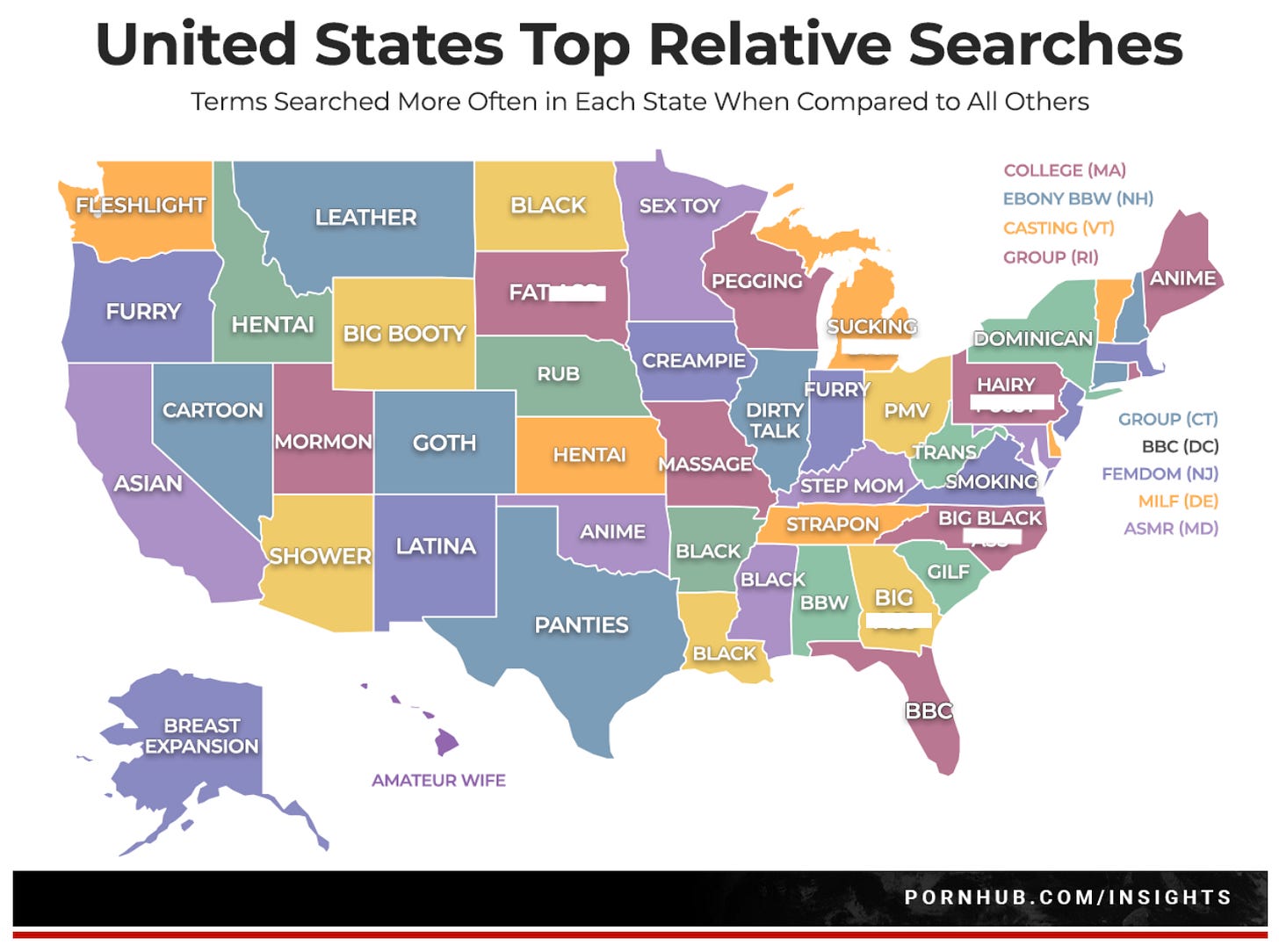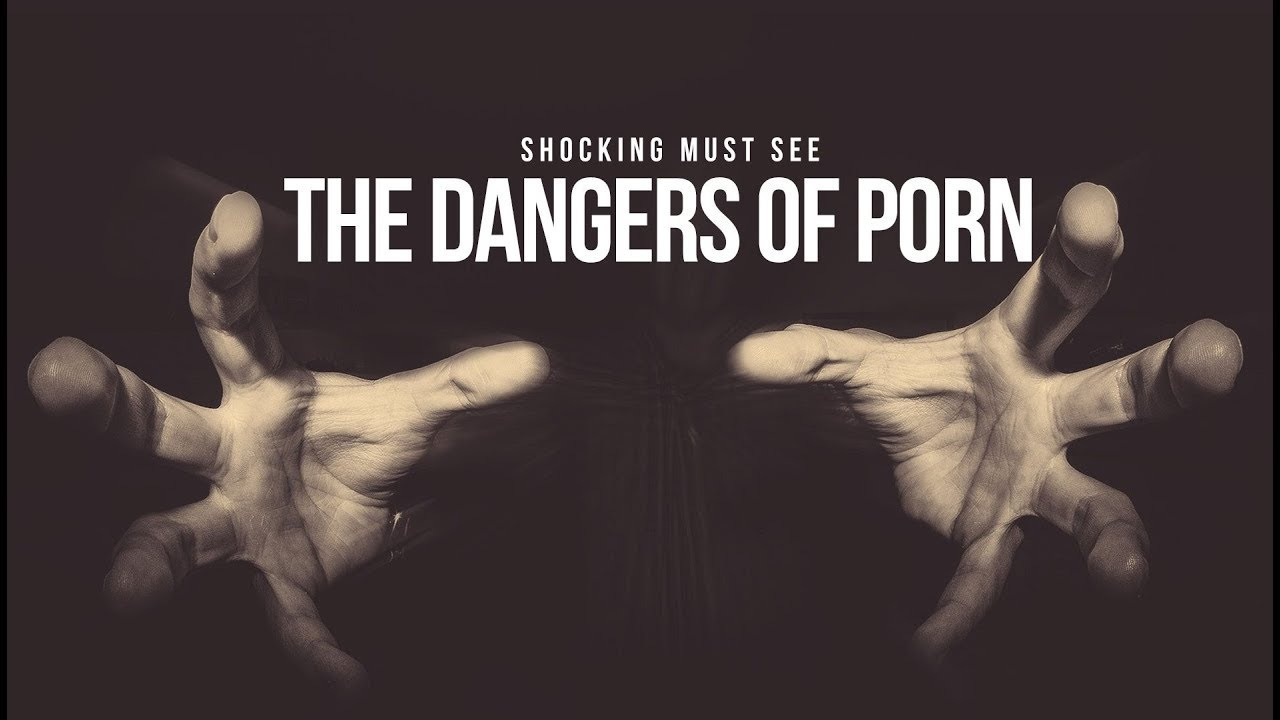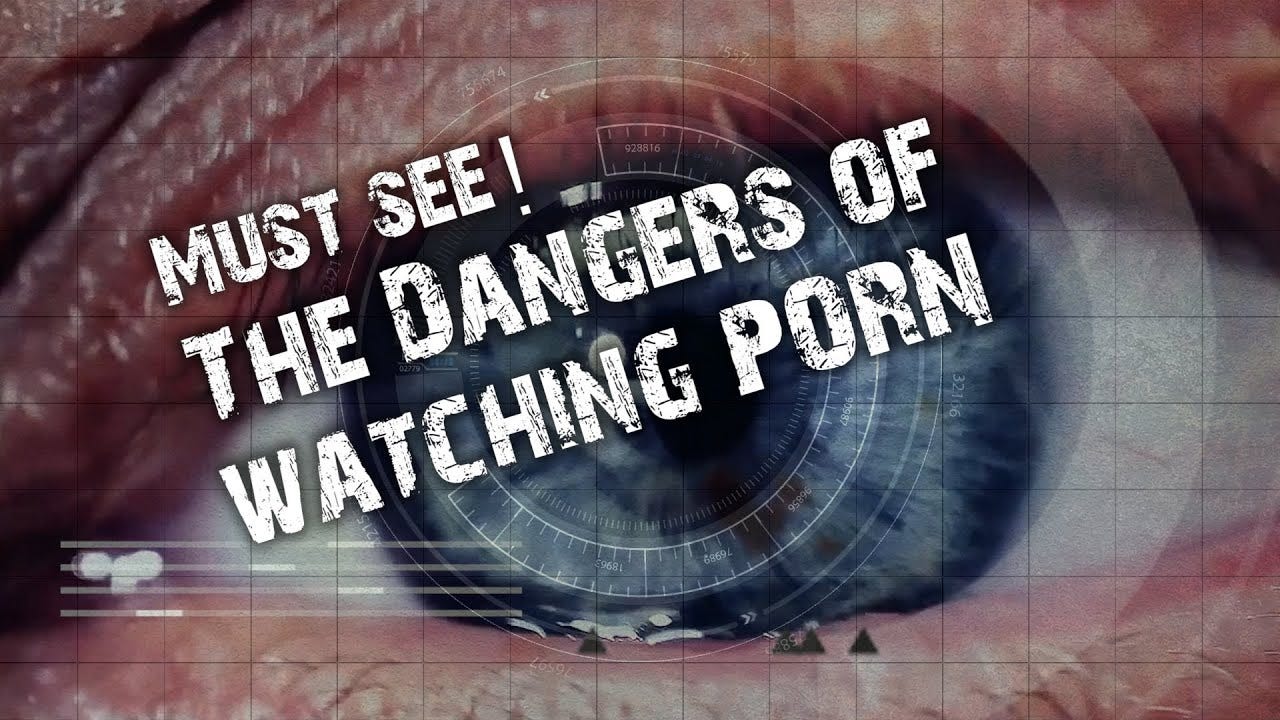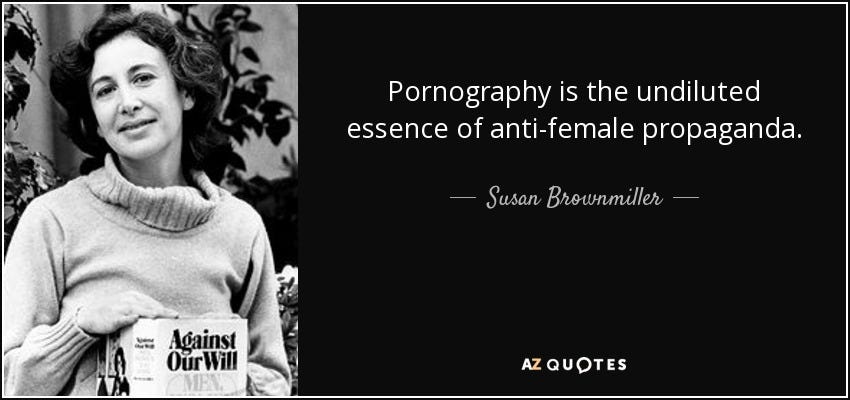Porn- That Thing America Does But Never Wants To Talk About
We LOVE sex...we just hate talking about it honestly and openly


Pornography has become the cultural elephant in our collective room. Everyone knows it’s there. Some of us aren’t bothered by it. Some enjoy it. Some are profoundly indifferent to it. Some find it highly offensive and are put off by any graphic depiction of sex or sexuality. They believe it’s the root of all that’s evil and want it wiped from the face of the Earth.
Some believe it exploits women and encourages human trafficking. And some believe the depiction of sex as being anything but between a married man and woman is a sin against God and a violation of His laws.
Yes, pornography means different things to different people, and there’s no one universally-accepted definition from which to start for those who want to discuss the subject. And that’s the most significant part of the problem. What IS pornography? What’s obscene? What’s over the line? When is “too much” too much?
Because when it comes to pornography, one person’s obscenity is another’s palate cleanser. So how does society contemplate drawing lines when we can’t even agree on what the problem is…or if there even IS a problem?
What is it we’re even talking about?
A porn director worries that young adults think sex is what they've seen on-screen.
A young man worries that the ubiquity of porn creates unrealistic expectations for everyone.
A porn performer worries that young viewers might think her videos are instructional.
They all wish people talked about it more.
Even looking for a definition can be wholly unsatisfying:
pornography
[ pawr-nog-ruh-fee ]
See synonyms for pornography on Thesaurus.com
📓 High School Level
Definition of pornography
noun
sexually explicit videos, photographs, writings, or the like, whose purpose is to elicit sexual arousal.
That’s it. That’s the definition, but it creates more questions than answers.
What is “sexually explicit?” What constitutes “sexual arousal?” You might look at those two questions and think, “Come on, everyone knows what they are.” But do they? Could every articulate what they know in a way that makes sense?
You know what they mean to you, but you have no idea what they might mean to someone else. And that brings us back to where we began:
What IS pornography?
Millions of people in the United States watch pornography, thanks largely in part to the Internet and free sites like Pornhub.
A majority of those people are under 34 years old. They've grown up in a world where online porn is free and, with the rise of smartphones, where viewers can watch it pretty much whenever — and wherever — they want.
But while porn may be easy to view, it's still hard to discuss — even for those with the easiest access to it — and it creates a host of worries and misconceptions.
"My students are often immersed in it but don't often have an opportunity to ... learn about it with tools for critical analysis," says Shira Tarrant, a professor at California State University, Long Beach.
Defining pornography has even escaped Supreme Court justices, as shown by Justice Potter Stewart in Jacobellis v. Ohio (1964):
In his concurring opinion in the 1964 Jacobellis v. Ohio case, Supreme Court Justice Potter Stewart delivered what has become the most well-known line related to the detection of “hard-core” pornography: the infamous “I know it when I see it.” statement.
“I have reached the conclusion . . . that under the First and Fourteenth Amendments criminal laws in this area are constitutionally limited to hard-core pornography. I shall not today attempt further to define the kinds of material I understand to be embraced within that shorthand description; and perhaps I could never succeed in intelligibly doing so. But I know it when I see it, and the motion picture involved in this case is not that.”
The fact that not even a Supreme Court justice could come up with an objective, one-size-fits-all definition of “pornography” provides a hint of the challenge American society has experienced in coming to grips with it. Despite our historically Puritan values, sex and sexuality have always eluded the heavy hand of social, church, and/or government control.
It’s like trying to nail jello to a wall. There’s no way to make it stick.
The primal human sexual urge has defied all efforts to keep it under wraps. We humans like sex, and our enjoyment of it take as many individual and unique forms as there are unique individuals on this planet. Controlling how those urges are expressed is a monumentally tricky (and, thus far, at least, unsuccessful) task. Churches, governments, and families have struggled unsuccessfully for millennia to reign in the human sexual urge. Sexual desire has resisted efforts to control it, from the primitive to the state-of-the-art.
Any boy with access to a computer and a way to access it out of range of their parents knows about PornHub. I’d wager that virtually every male who’s ever accessed a computer in this country has, at some point, typed “pornhub.com” into the address field and hit ENTER.
Of course, PornHub isn’t the only free porn site, just the biggest one. As it turns out, because of the traffic porn sites receive, they’re also some of the most innovative sites on the Internet. Many of the features you now take for granted all over the Internet were first developed by porn sites.
Ah, but I digress. One of the things I love is that at the end of every year, PornHub releases a report documenting American porn search habits. It’s an interesting, if not altogether instructive, compendium of what people are searching for all over the country.
Yeah, here in Oregon, people are searching for “furries.” I’m not entirely sure what to do with that, but I find it somewhat…um, well, I’m not sure what to do with it.
Pornhub is pulling back the covers on America’s X-rated viewing habits, unveiling the website’s most popular searches for 2022.
The company released the dirty data on Tuesday, revealing that “lesbian” was the most-searched term across the frisky 50 states, with “hentai” — a type of Japanese anime — following close behind.
Meanwhile, the words “blowjob,” “cosplay” and “trans” also saw considerable search growth in 2022, while “transgender” exploded in popularity to become America’s fourth-most-viewed category overall.
According to Pornhub, the kinky category saw a 75% increase in viewers, with the company stating that its top searches are “often influenced by pop culture and other worldwide events.”
The data already revealed that 86% of Americans consume PornHub videos on their cell phones.
And how many of us have pulled up to a stop light, looked over to the car in the next lane, and noticed the front or back seat TV monitor showing a porn video? It’s happened to me more times than I care to remember.
Pornography- like it or not, no matter how you happen to define it- is an integral part of American culture. And that might be because we don’t talk about it- with each other or with our kids. I don’t have kids, so I can’t speak to that part of it, but porn is America’s dirty little secret. Everyone knows about it, most of us watch it, but no one wants to admit it. And it’s because we’re silent about porn that we can’t honestly discuss it.
Does porn create unrealistic expectations? Does it become sex education for too many children? Is this a result of us being too embarrassed to talk about it? From where I sit, I’d say the answer is “yes” to all three questions. Americans seldom discuss sex. We’re raised to want sex, but we get little in the way of real education about it. And so we tend to enter our majority confused, ignorant, and wholly unprepared for that part of adulthood.
It’s always amazed me that something so fundamental to our humanity remains shrouded in so much shame, lack of understanding, and misinformation. Our Puritan ethic is deeply ingrained.
I still remember the day my Dad had “The Talk” with me. I was probably 11 or 12, and we were walking back to our car after an afternoon of grouse hunting. He explained in very vague terms about sex and how everything fit together. When we reached the car, he handed me a copy of Everything You Ever Wanted To Know About Sex (But Were Afraid To Ask) by Dr. David Rubin.
Dad looked at me seriously and said, “If you have any questions, you know you can ask your mother or me, right?” I nodded affirmatively, but my head was spinning. I hadn’t been prepared for that assault on my senses, plus I felt as if I’d been handed a sex manual. For a pre-teen boy, that was pretty heady stuff, and it fueled more than a few restless nights.
I didn’t sleep on my stomach for a long time afterward.
I’m no closer to finding a definition of pornography than anyone else, and I defy anyone to provide a universal, objective definition that can be applied across the board in a legal sense. I’m convinced it’s a well-nigh impossible task because the very nature of the question is the attempt to quantify the unquantifiable.
So, if we can’t agree on a definition (“I know it when I see it” isn’t a sound legal or moral standard), how about we agree to disagree? If you despise pornography, it would be advisable to steer clear of it. Some people enjoy it, and though that might not sit well with some, it’s not their place to impose their morality on others.
As for those who might be “addicted” to pornography, some argue that “pornography addiction” isn’t even a real thing. Then again, I suppose it may be possible to develop a psychological addiction to just about anything. If that’s true, then society should provide treatment to those struggling with such an addiction.
But how can we effectively treat or even address the “problem” of pornography when we can even agree on a definition of it? Until we can do that, and I’ll argue we’re a long way from being able to do that, why not agree that individuals should have the right to approach the “problem” as best they can? Because some may not see it as a “problem” at all, even though others might struggle with its role in their life.
I don’t know the answer because I’m still unsure what the question is.
Each of us will have to decide how, or if, to address this question. For some, there’s no question because pornography isn’t something they’re concerned about. They don’t define things as “nasty,” dirty,” “smutty,” or “profane.” It’s simply free speech and expression.
For others, it is very much a problem, and pornography is the obscene exploitation of women and the perversion of sex.
Both of those viewpoints are valid and deserve recognition in a free society. That said, neither should hold sway over the other. At least not until we arrive at a legally sound definition of pornography. Good luck with that one, eh?
I won’t hold my breath on that happening any time soon.











It has always amused me that the heaviest consumers of gay and trans porn are those very states trying to legislate such realities out of existence.
By the bye, there is a really interesting podcast/interview with the trans actress Daisy Taylor at the link below. It is not entirely safe for work (the word "fuck" comes up a few times; the first time, Ms. Taylor freezes and apologizes, uncertain if she is allowed to say that word in the given context) but no forbidden nakedness. It was one of the most informative and non-prurient discussions I've ever heard. Well worth the hour+. https://www.youtube.com/watch?v=QYxEm3YwKOs&t=2s